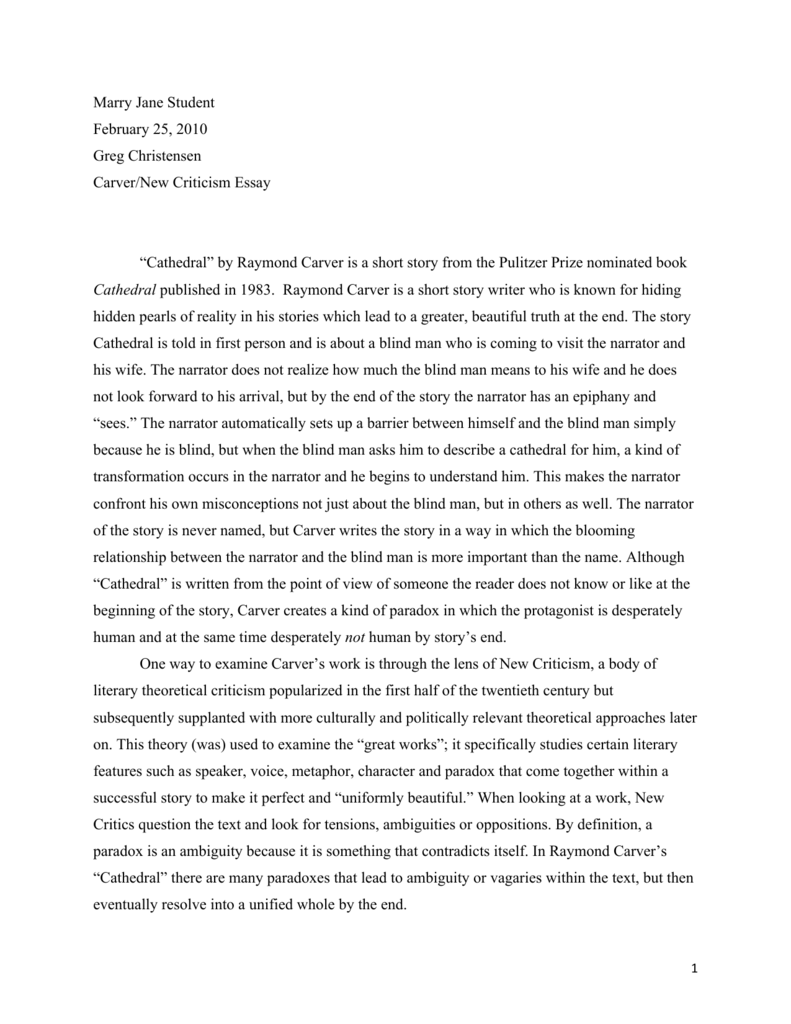
Post navigation
The purpose of criticism is to encourage positive outcomes (what the giver wants). Ideally, it brings balance into our lives, provides us with a basis of comparison, and brings truth, honesty, and intimacy. Hopefully, it gives us honest feedback—a balance of praise and criticism · An Essay on Criticism () was Pope’s first independent work, published anonymously through an obscure bookseller [12–13]. Its implicit claim to authority is not based on a lifetime’s creative work or a prestigious commission but, riskily, on the skill and argument of the poem alone. It offers a sort of master-class not only in doing · An Essay on Criticism was not the only poetical essay written by Pope. French writer Voltaire so admired Pope’s Essay on Man that he arranged for its translation into French and from there it spread around Europe. Marrysong by Dennis Scott As in Pope’s poem, Scott creates a metaphor of the landscape to represent his marriage

The Full Text of “From An Essay on Criticism: A little learning is a dangerous thing”
· An Essay on Criticism was not the only poetical essay written by Pope. French writer Voltaire so admired Pope’s Essay on Man that he arranged for its translation into French and from there it spread around Europe. Marrysong by Dennis Scott As in Pope’s poem, Scott creates a metaphor of the landscape to represent his marriage An Essay on Criticism, didactic poem in heroic couplets by Alexander Pope, first published anonymously in when the author was 22 years old. Although inspired by Horace ’s Ars poetica, this work of literary criticism borrowed from the writers of the Augustan Age The purpose of criticism is to encourage positive outcomes (what the giver wants). Ideally, it brings balance into our lives, provides us with a basis of comparison, and brings truth, honesty, and intimacy. Hopefully, it gives us honest feedback—a balance of praise and criticism

Navigation menu
· An Essay on Criticism was not the only poetical essay written by Pope. French writer Voltaire so admired Pope’s Essay on Man that he arranged for its translation into French and from there it spread around Europe. Marrysong by Dennis Scott As in Pope’s poem, Scott creates a metaphor of the landscape to represent his marriage “From An Essay on Criticism: A little learning is a dangerous thing” Vocabulary A little learning Pierian spring Draughts Intoxicate Largely Sobers Fired The Muse Imparts Tempt Bounded level Short views Science Alps Mount O'er Vales Tread Attained Survey The · Published in , Alexander Pope 's poem An Essay on Criticism is a series of finely-wrought epigrams on the art of writing and one of the most quoted poems in English. This well-received poem

“From An Essay on Criticism: A little learning is a dangerous thing” Vocabulary A little learning Pierian spring Draughts Intoxicate Largely Sobers Fired The Muse Imparts Tempt Bounded level Short views Science Alps Mount O'er Vales Tread Attained Survey The An Essay on Criticism, didactic poem in heroic couplets by Alexander Pope, first published anonymously in when the author was 22 years old. Although inspired by Horace ’s Ars poetica, this work of literary criticism borrowed from the writers of the Augustan Age The purpose of criticism is to encourage positive outcomes (what the giver wants). Ideally, it brings balance into our lives, provides us with a basis of comparison, and brings truth, honesty, and intimacy. Hopefully, it gives us honest feedback—a balance of praise and criticism

III. The ideal character of the critic (): 1. Qualities needed: integrity (), modesty (), tact (), courage (). 2. Their opposites (). 3. Concluding eulogy of ancient critics as models (). Close Reading of a · In Part I of “An Essay on Criticism,” Pope notes the lack of “true taste” in critics, stating: “’Tis with our judgments as our watches, none / Go just alike, yet each believes his own.” Pope advocates knowing one’s own artistic limits: “Launch not beyond your depth, but be discreet, / And mark that point where sense and dullness meet.” · Published in , Alexander Pope 's poem An Essay on Criticism is a series of finely-wrought epigrams on the art of writing and one of the most quoted poems in English. This well-received poem
No comments:
Post a Comment